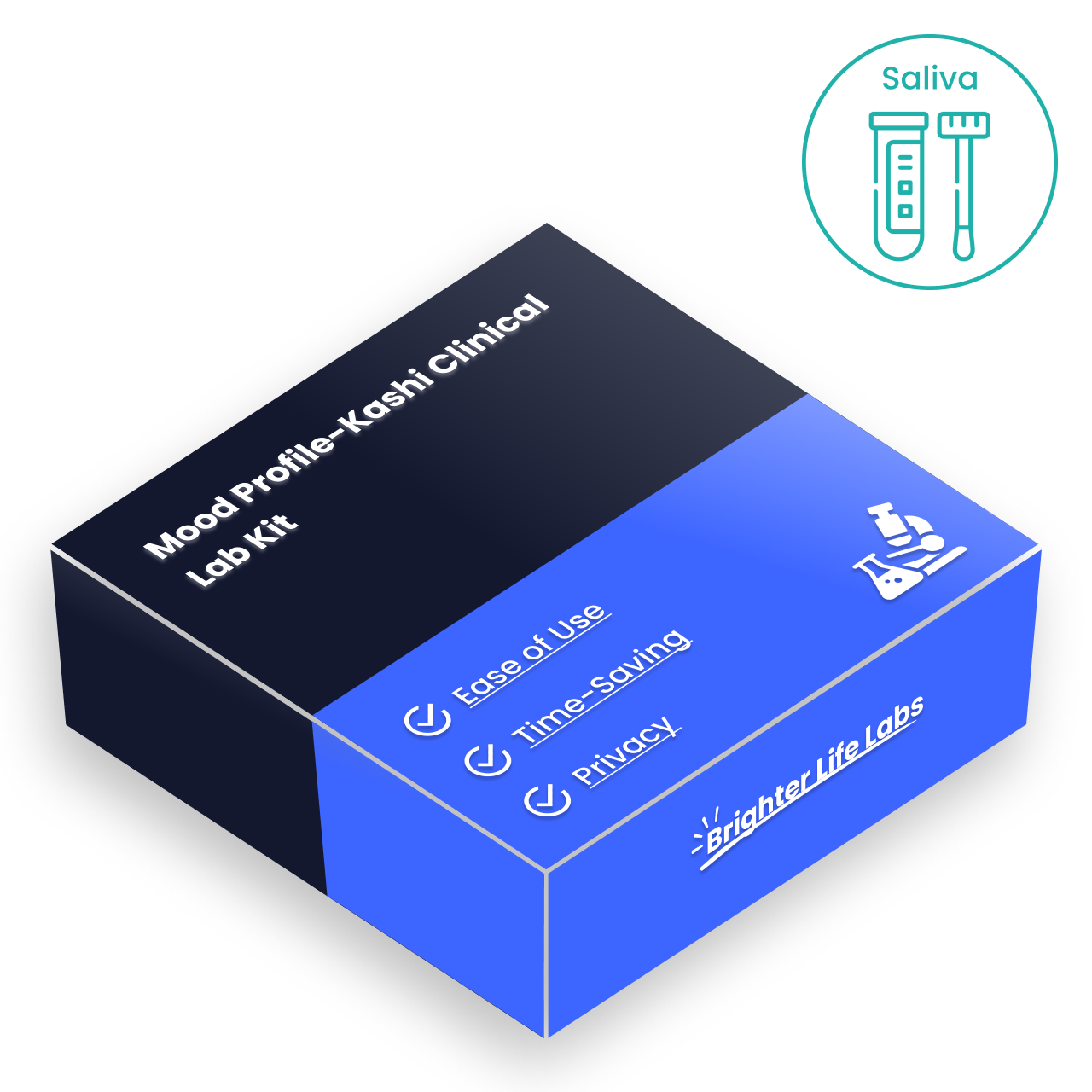1
/
of
1
Kashi Clinical lab
Mood Profile-Kashi Clinical Lab Kit
Mood Profile-Kashi Clinical Lab Kit
Regular price
$199.00 USD
Regular price
Sale price
$199.00 USD
Unit price
/
per
Shipping calculated at checkout.
Couldn't load pickup availability
Note: This is a test kit that will be mailed to you for an at home collection
Fasting Required:
No
Lab:
Kashi Clinical Lab
Specimen:
Buccal Swab
Results:
Average processing time 5-7 business days
Note: Result turnaround times are an estimate and are not guaranteed. Our reference lab may need additional time due to weather, holidays, confirmation/repeat testing, or equipment maintenance.
Description:
The Purpose of the Behavioral Health Genetic Panel is to help Identify nutrient deficiencies that may be contributing to mood disorders as well as revealing genetic factors that make individuals susceptible to depression and anxiety.
Included:
COMT - A mutation in the catechol-O-methyltransferase gene (COMT) has been extensively studied for its effect on levels of anxiety. The COMT gene codes for a protein that is essential for the breakdown of several mood associated neurotransmitters, most notably dopamine. Scientific research has demonstrated that a common mutation in COMT, the conversion of the amino acid valine to methionine at position 158, causes a dramatic reduction in its ability to break down neurotransmitters. MTHFR - The enzyme known as methylenetetrahydrofolate reductase (MTHFR) is essential in the conversion of folate to its active form. Many people carry mutations in the gene coding for this enzyme that substantially reduce its functionality, and in turn, lead to reduced plasma levels of the activated form of folate. In work dating back to the 1960’s, scientists have observed an association between folate deficiency and mood disorders. Mutations affecting Vitamin B12 - Vitamin B12 is an essential co-factor in numerous metabolic reactions, and many observational studies have found that deficiency is a risk factor for the development of depression. Vitamin B12 supports the synthesis of a molecule known as S-adenosylmethionine (SAM) which is critical in regulating levels of neurotransmitters in the brain. Scientific research suggests that B12 deficiency may contribute to a reduction in SAM leading to chemical imbalances in the brain resulting in depression. Mutations affecting Vitamin D - Vitamin D is best known for its importance in calcium absorption and regulation, it is also implicated in mental health. Vitamin D plays essential roles in regions of the brain that are associated with mood regulation including the hippocampus, amygdala, and thalamus.
Share


